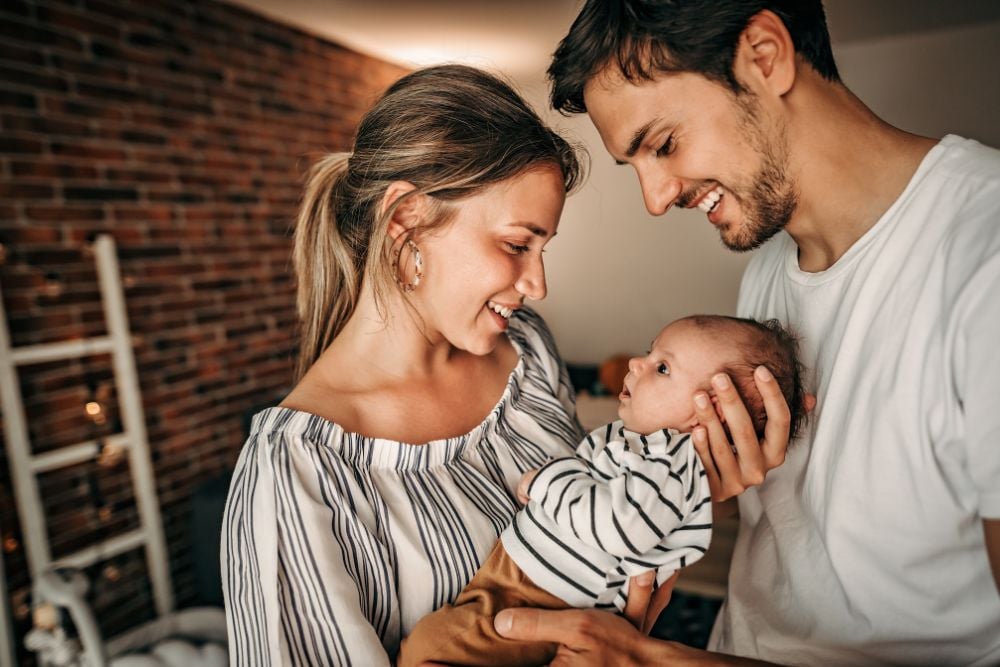Can Donating My Eggs Hurt My Fertility?

A common concern that prospective egg donors have is whether or not the egg donation process will put their fertility at risk. This is understandable, considering how much of our understanding of female fertility is closely tied to the number of eggs we have, especially as we get older. However, in the vast majority of circumstances, donating your eggs poses very little risk to your fertility. Most women who become egg donors and later on choose to have their own children are able to do so without issue.
Female Fertility 101
Women are born with the total number of eggs that they will have in their entire lifetime, which is approximately 1 million eggs at birth. However, by the time a female has reached puberty, only about 300,000 eggs are left. When the female body becomes sexually mature, it starts to go through the processes of ovulation and menstruation.
Most of us know that ovulation is when the ovaries release a mature egg into the fallopian tubes and that menstruation is the body’s way of discarding unfertilized eggs along with the endometrial tissue (i.e. the tissue that thickens and lines the walls of the uterus in preparation for pregnancy). However, this is only a small part of the bigger picture.
Before reaching maturity, each egg cell is contained in a tiny, fluid-filled pouch called an egg follicle. For an egg to mature and release, these follicles must be activated, which is a biological response triggered by cyclical hormones. Every time a woman ovulates, up to 20 egg follicles can be activated. However, only one follicle will produce a mature egg that gets released into the fallopian tubes. The remaining activated follicles and immature egg cells disintegrate and get reabsorbed back into the body. As time goes on, this naturally depletes a woman’s ovarian reserve, hence why it can be more challenging for women over the age of 35 to get pregnant without fertility care.
Understanding Egg Follicles as an Egg Donor
When a woman donates her eggs, she undergoes a procedure known as egg retrieval, which is very similar to the first part of in vitro fertilization (IVF). In IVF, patients are given fertility medications that help to activate and mature several egg follicles in a single cycle. This means that all of the immature egg cells that would normally disintegrate and be reabsorbed into the body during a natural ovulation cycle are actually transitioning into fully mature eggs.
The same applies to egg donation – egg donors use fertility medications to produce extra mature eggs in a single retrieval session. Even though egg donors are literally relinquishing multiple eggs at once, these are eggs that would have been otherwise lost in a regular menstrual cycle anyway. The rest of the egg donor’s regular ovarian reserve, as well as her fertility, is not impacted by this process.
Fertility Complications and Egg Donation: Do They Exist?
While egg donation does not have a negative impact on female fertility in the vast majority of circumstances, it is still possible for complications that affect fertility to occur. However, fertility complications after egg donation are often caused by factors outside of the donation process.
For example, if an egg donor has an undiagnosed case of endometriosis, it’s possible that the fertility medications used in egg donation will exacerbate the condition and lead to long-term fertility issues later in life. To protect the health and safety of the egg donor, egg donor agencies and fertility clinics generally do not allow people with endometriosis to donate their eggs. However, many women have endometriosis and don’t know it. If you’re thinking about becoming an egg donor, it’s important that you first consult with a gynecologist to make sure it’s safe for you.
If you are interested in becoming an egg donor and have any questions or concerns, please contact Fertility Source Companies today.


